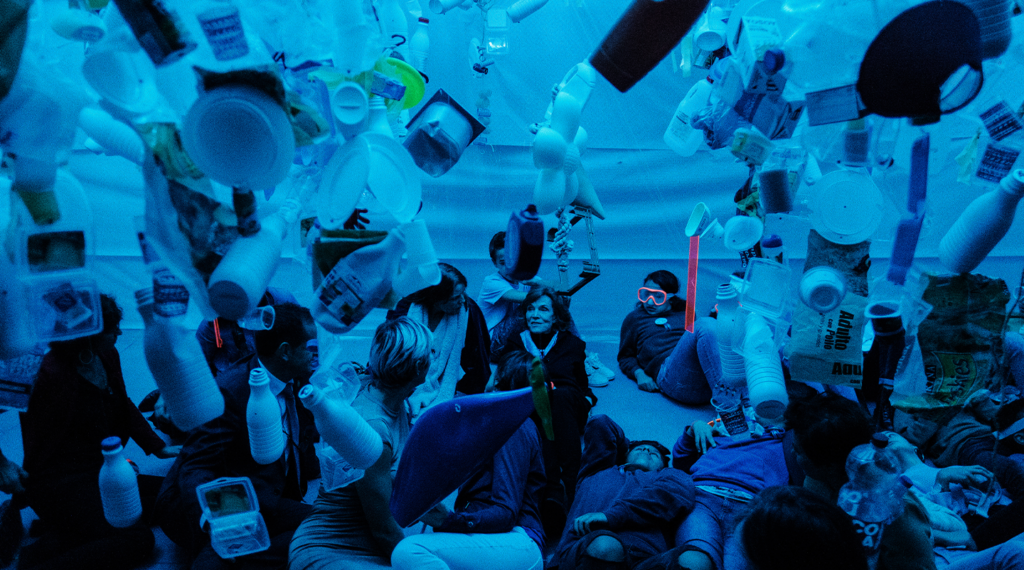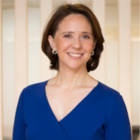Future culture: The role of European cultural foundations in times of uncertainty

Art and culture weave the future, because it only exists when we imagine it. And when exercising this imagination, creation projects its desires and fears, the worlds that should be, or could be, or those that it fears are coming into being.
In this sense, art and culture constitute a “vector” that suggests possible ways forward, so that this future may be substantiated from the standpoint of other disciplines. More than the last word, art and culture offer us the first minor word of what is yet to come.
In times of uncertainty and change, such as those we are experiencing, culture and the arts see their resources cut to meet other overriding social demands. Culture is thus perceived as something superfluous that we cannot afford when faced with other pressing needs. Or simply as something that is useless. When Paul Auster received the Prince of Asturias Award for Literature in 2006, he stated “Does a lack of practical purpose mean that books and paintings and string quartets are simply a waste of our time? Many people think so. But I would argue that it is the very uselessness of art that gives it its value –and that the making of art is what distinguishes us from all other creatures who inhabit this planet, that it is, essentially, what defines us as human beings. To do something for the pure pleasure and beauty of doing it.”
This way of understanding art and, in a broader sense, culture ultimately responds to a profound awareness of what it means to be human; of how humanity has evolved and developed its life on Earth over thousands of years; of the meaning we have given to our life. Since art is the most profound expression of humanness. In this sense, whatever the circumstances that human beings live through – and current circumstances are truly difficult and beset with challenges – they are accompanied by the taste and longing for symbolic expression, the search for beauty and the need to express what inspires and makes it meaningful. Useless, possibly, but absolutely necessary. Useless, perhaps, but essential.
Numerous foundations work to promote, protect and develop this fundamental facet of humanity. We are very aware that we live in an interlinked – one might say hyperlinked – world, but that has not allowed us to solve some of the most serious problems that affect us. Some have actually become more acute in recent times and have reached dangerous extremes that require urgent solutions. And when we imagine the best possible future, when we work to improve and enhance it, our endeavours become a benchmark for that way of understanding the possibilities of change, for that need to honour those who continue to work so that art, culture and beauty may be part of the solution.
Today we are aware of the intrinsic relationship that exists between culture and well-being, of the fact that something as commonplace as visiting museums, attending concerts or reading frequently has a direct effect on our quality of life and our health. And how important cultural education is, so that, in an age of post-truths, societies may develop with independence of mind, capable of discerning and interpreting their hopes and fears, in order to make better life decisions.
Art and culture have that cathartic effect via which one understands oneself better by gazing into the mirror of the other, and such an understanding of the complexity of human nature generates societies with more supportive, fairer relationships.
We know that the tempos of culture are slow: they require unceasing dedication that cannot be interrupted. Both culture and the heritage it engenders require certain inertias which, if abruptly interrupted, are difficult to weave together again. This reflection is likewise valid for the audience of cultural activities, as well as for artists and cultural agents who, with their voices and their proposals, serve as beacons for the spirit of their time. Through the mechanism of art, they speak to us about their concerns and cast a critical eye on the new social and environmental frontiers that we need to safeguard.
They are already articulating the future to come and its possible ways forward. They apply their creativity to the new narratives and techniques of this day and age, yet they never stop retelling the stories of Antigone, reinterpreting Bach’s chords, repainting Velázquez or Goya’s canvases in order to express what they long to say, which is, in short, what we wish to be. Old/new stories that, while reminding us of who we are, project us forward.
Philanthropic institutions and organisations start out from the basis that our efforts thrive and are amplified, in such a way that enables us to benefit society as a whole. In this respect, by focusing on social areas in which major solutions – of a scientific, economic or social nature – originate and bear fruit, they are also helping such solutions to achieve the best outcomes.
Today more than ever, the role of philanthropic foundations and organisations must be to sustain this prolonged cultural activity, not only via funding, but also by providing resources and tools so that this system of culture remains in operation: catalysing the creative impulse of artists, facilitating access to their work and making it better known to the public at large, supporting an industry undermined by the crisis, and so on.
Europe is culture, because it has been constructed, above all, as a projection of its values: as Steiner reminded us, while in other places avenues that are simply numbered grow wildly, the streets and squares of Europe have names of poets, scientists, artists… a way to honour the memory of those who have taught us, in some way, to draw the outlines of a better future. Values and culture – ethics and aesthetics – are interwoven concepts in the idea of Europe, an idea that needs to be maintained today more than ever as an exercise in self-esteem.
The major European cultural foundations have both the opportunity and the responsibility to articulate and coordinate strategies that result in the most effective work to influence and continue opening up these paths forward. Many of the philanthropic organisations forming part of the Philea Arts and Culture Thematic Network exert a great deal of influence and dictate the cultural agenda of their countries on a daily basis: promoting new artists, making decisions regarding exhibitions and programming, or encouraging new digital and visual formats. It is necessary to coordinate these actions, add those that are lacking, and open an enriching debate to reflect on the shared destiny we wish to draw for ourselves.
If we are coordinated, we will be able to add many first minor words, find the best of the possible ways forward for those who accompany us and for those who come after us, following, just as we have done, in the steps that others previously took for us all.
Rethinking the future, reflecting in positive ways with an open mind are some of the challenges we face, and thanks to organisations like Philea, these become part of our daily lives in an effective way, through unity and generosity. This unity, the will to work together, is the best – if not the only – way to achieve success, to transform problems into future solutions, to overcome obstacles and build a more balanced, fairer society… a better society. Working with firm goals, via well-defined initiatives, with transparency and in a coherent and responsible manner.
For that reason, there is no doubt that the work of foundations may be enhanced through unity, collaboration, work in common, the exchange of experiences and the shared search for solutions, in addition to multiple participation in projects. The strengthening and development of a network that links up the different activities, as well as its vitality, are essential elements for the future. Therefore, any initiative that works to achieve these goals should be welcomed and its efforts supported and encouraged.
The biologist Sandra Myrna Díaz, who received the Princess of Asturias Award for Technical and Scientific Research in 2019, expressed in engaging words how this unity, this interrelation between living beings, by transcending us, is what sustains us, because it “both runs through us and weaves us together”, as she put it. And that connection, those relationships, which are what ultimately make up the essence of what it is to be human, move us to carry out unceasing work on which, as she herself stated “the persistence of the fabric of life depends today and will depend in the future”.
This article is featured ahead of the event “Reimagine the Future Through Arts and Culture: Bold storytelling, social change and the environment” taking place 19-20 October 2022 in Oviedo, Spain. The event is organised by Philea’s Arts and Culture Thematic Network.
Authors

